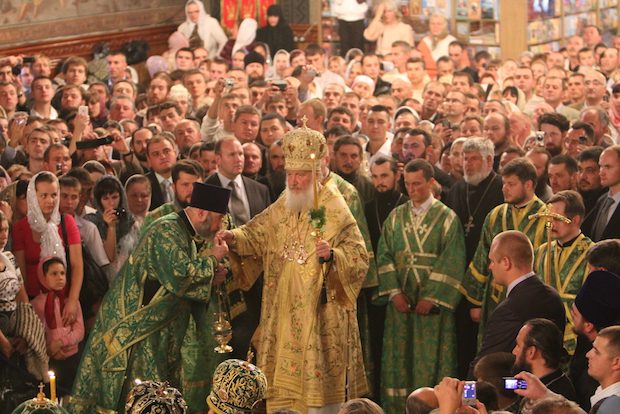The ‘Re-Traditionalization’ of Europe?

It is most certainly the case that the world is going through a radical realignment along nationalist and provincialist lines. From Bosnia to Chechnya, Rwanda and Barundi, from South Sudan to Scotland, populations have been turning increasingly inward for civic and cultural identity.
But within these balkanizing tendencies is a process called re-traditionalization. Because globalization challenges the traditions and customs, the religions and languages of local cultures, its processes tend to be resisted with a counter-cultural blowback. In the face of threats to localized identity markers, people assert their religiosity, kinship, and national symbols as mechanisms of resistance against globalizing dynamics.
So far so good.
And continue they will. We should not regard this resurgent nationalism a temporary political fad. This is because globalization entails its own futility; as we have found with the attempt to bring liberal democracy to the Middle East, few are willing to die for emancipatory politics, feminism, and LGBT rights. But the willingness to die for land, people, custom, language, and religions is seemingly universal. Though a formidable challenger, globalization appears to have no chance of overcoming such innate fidelities.
I think this is true. To modify a phrase of MacIntyre’s, dying for the EU is like dying for the phone company. More:
And so, it is certainly the case that the Brexit signifies the rise of nationalism in Europe, but it also suggests the inexorable revival of traditional values and norms. And while there are a number of current cultural peculiarities and paradoxes indicative of a stubborn secularism throughout the West, we can expect social and cultural trends to resolve such inconsistencies in favor of traditional beliefs and practices.
A renewed Christian Europe may not be so far away.
Would that it were so! But I don’t believe it is. I love hearing the good news of religious revival within Russia, but news that the Duma has passed a law massively restricting the religious liberty of non-Orthodox Christians is terrible news. Putin hasn’t signed it, but I expect that he will. You know that I deeply want Europe to return to its Christian roots, but doing so out of purely tribal, nationalistic reasons does not give one hope that such a return would be truly Christian.
The problem for people like me is that nationalistic religion is, unfortunately, part of tradition in many places. The reason I was pleased that Brexit won is that I am almost always in favor of the local over the global. To the extent that the EU threatened local identities, cultures, and traditions, I think it was a threat to be resisted. I would love to see Western Europe’s Catholic and Protestant churches filled again, but if Europeans returned to them not out of a love of God and a longing for His presence, but because it was part of sticking it to Them (whoever “Them” may be), then I’m concerned.
On the other hand, getting them in the door by whatever means is to be celebrated, and then the pastors could reacquaint their de-Christianized peoples with the faith. But are Europe’s priests and pastors prepared to do this? Do they have the faith still? I don’t know, and would love to hear from European Christian readers of this blog.
Point is, two cheers for what Stephen Turley says. But the growing instrumentalization of the Orthodox faith in Russia for nationalist purposes is not a good sign. On the other hand, my suspicion is that the desire I have to separate the faith from nationalism is a distinction that is abstract and academic in the historical experience of lived Christianity outside the United States. Again, I am eager to hear from non-American readers on this.
Subscribe for as little as $5/mo to start commenting on Rod’s blog.